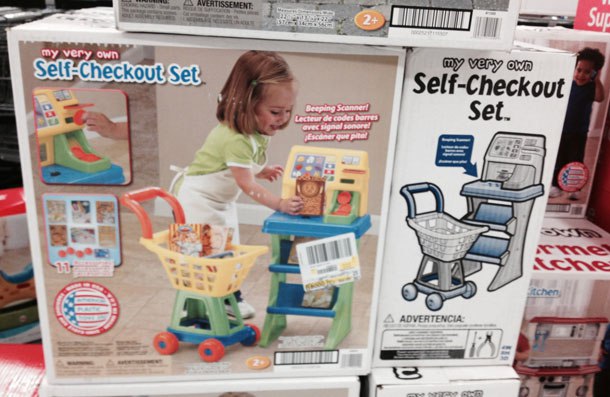$18 Million WIC And Food Stamps Fraud Scheme Used Pretend Grocery Stores

WIC (Women, Infants, and Children) and SNAP (Supplemental Nutritional Assistance Program) are both federally-funded, state-administered programs with the simple goal of preventing Americans from going hungry. In Georgia, 54 people have been indicted for setting up pretend grocery stores that defrauded the programs of millions of dollars.
While this particular fraud scheme only came to light when the federal indictment was unsealed yesterday, taxpayers learned about problems with WIC administration in Georgia last year. The massive fraud and imaginary store scheme wouldn’t have been possible without serious problems in the state’s administration of nutrition programs. For example,
WIC is a stricter program than food stamps; it’s intended for families with small children and pregnant or lactating women. Recipients receive paper vouchers that they exchange for a very specific selection of groceries: think staple foods like fresh fruit, peanut butter, beans, canned fish, milk, and of course infant formula. It’s more challenging to defraud WIC, but this evidently doesn’t stop some people.
The Federal Bureau of Investigation announced that the people indicted in this scheme allegedly set up imaginary grocery stores, then handed out cash in exchange for WIC recipients’ vouchers and SNAP (food stamps) recipients’ account balances. Participants in the fake store scheme have been charged with one count each of mail and wire fraud conspiracy, which carries a prison term of up to 20 years and a fine of up to $250,000, and one count of money laundering conspiracy, which carries the same prison term and a fine of up to $500,000.
People who exchanged more than $1,000 of their benefits for cash were also indicted: they face fines of $250,000 and up to five years in prison.
In Georgia, epic dysfunction in administration of the WIC program meant that millions of taxpayer dollars were wasted. Somehow, the program was paying up to $7 per gallon of milk. That would be about right for a gallon of organic milk at Whole Foods, but WIC vouchers don’t cover organic dairy products. The program’s computers were so outdated and useless that the program couldn’t even keep track of whether storekeepers previously banned from the program for fraud had opened new stores.
There isn’t really a happy ending here: maybe the upshot is that the state will be more vigilant in looking out for fraud and imaginary stores pretending to sell staple foods to families.
Fifty-Four Defendants Charged in $18 Million WIC and Food Stamp Fraud Conspiracy [FBI]
Atlantans charged in ‘massive’ food stamp fraud [Atlanta Journal-Constitution]
“Huge problems” plague Georgia WIC program, cost taxpayers millions [Atlanta Journal-Constitution]
Want more consumer news? Visit our parent organization, Consumer Reports, for the latest on scams, recalls, and other consumer issues.

